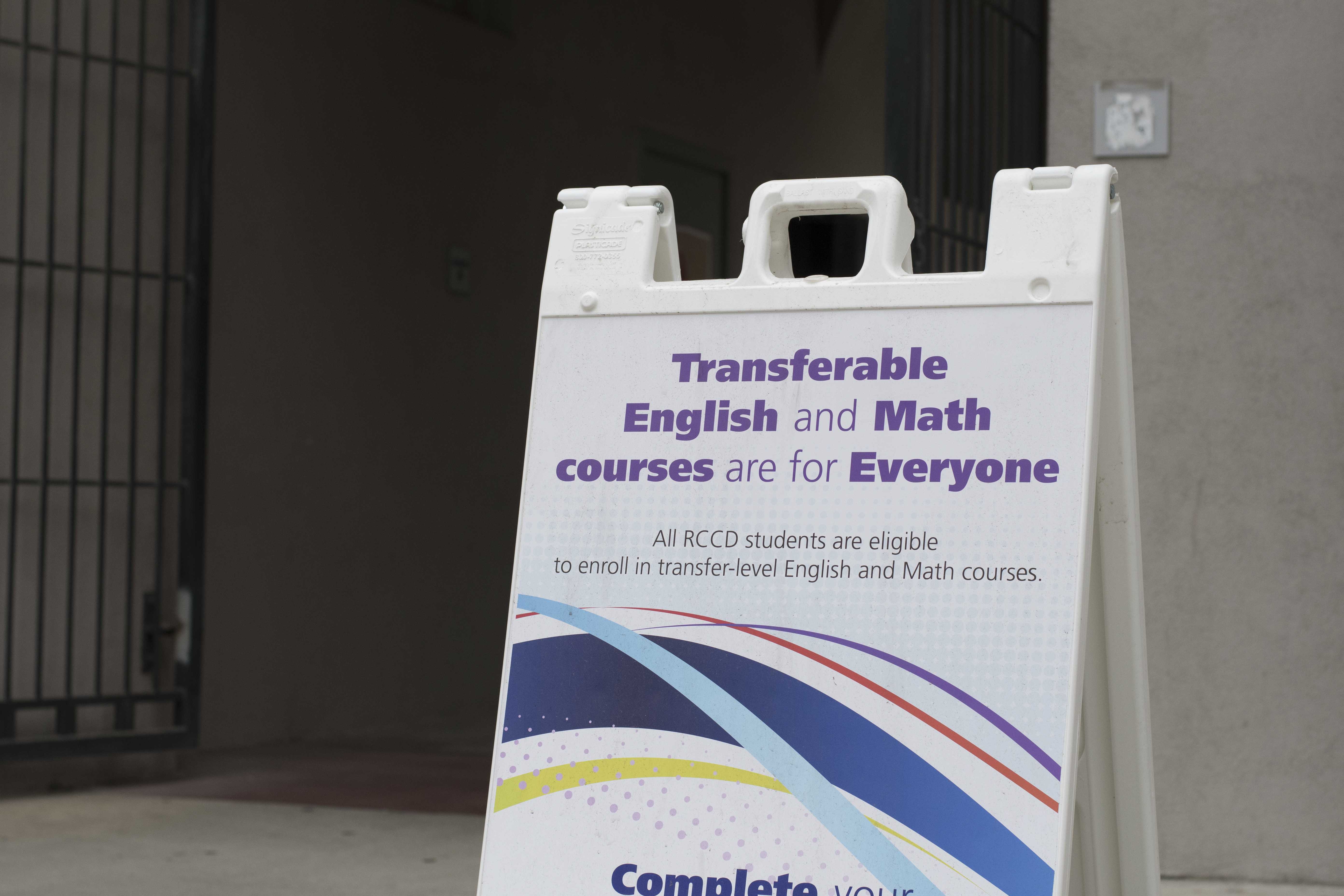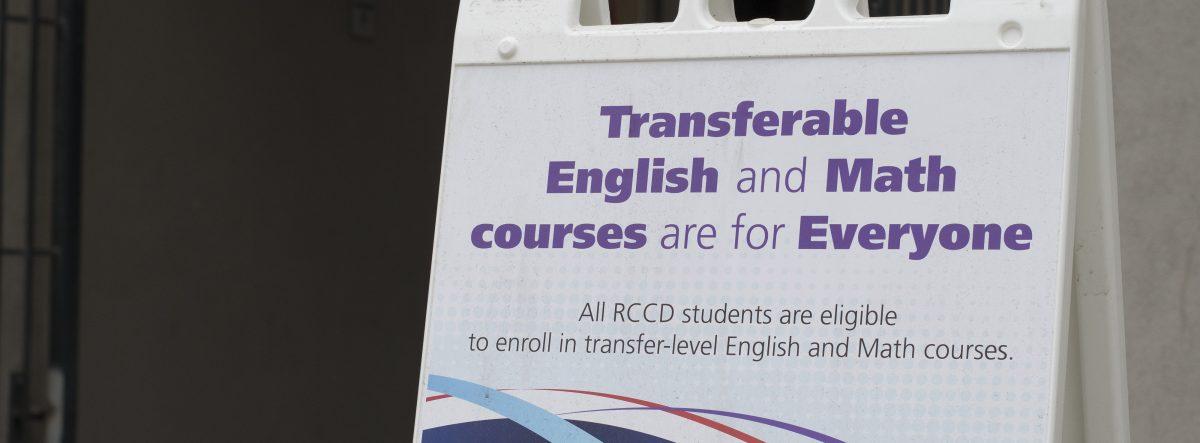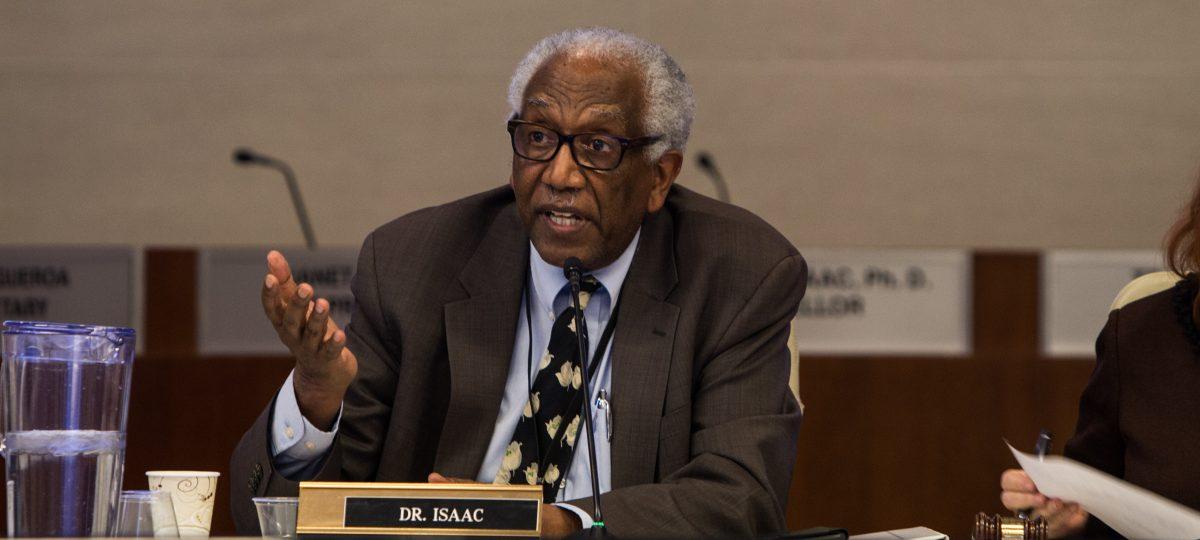
By Erik Galicia
Beginning this fall, Riverside City College students will be able to enroll directly into transfer-level math and English courses without remedial course requirement.
The new placement system comes as a result of Assembly Bill 705. The bill requires community colleges to “maximize the probability that the student will enter and complete transfer-level coursework in English and mathematics within a one-year time frame.”
“A lot of statewide research indicates that the current instrument for placement is under-placing students,” said professor Kelly Douglass, AB705 coordinator for the English department at RCC.
Under the new system, RCC students will take a survey on their high school performance instead of the AccuPlacer test to determine which classes they should enroll in. This meets the mandate of the bill that requires colleges to use a student’s high school coursework, high school grades and high school GPA as the determining factors for math and English placement.
“The research shows that high school performance is a good predictor for up to 10 years,” Douglass said. “The idea is it’ll help students by getting them through faster, saving them time and money.”
In 2017, the California legislature found that “California’s community colleges identify more than 75% of its students as unprepared and refer this overwhelming majority … to remedial courses.”
According to the Student Success Scorecard, only 40% of students placed into remedial classes go on to transfer and complete a degree in a six-year time frame. In comparison, 70% of students allowed to enroll directly into transfer-level courses achieve those goals within that time frame.
“Under the current system, we see students of color disproportionately underplaced,” said professor Valerie Merrill, AB705 coordinator for the math department at RCC. “So we want to give everyone the opportunity they deserve.”
According to Merrill, only 7% of students that start off three levels below pre-algebra actually go on to pass transfer-level math.
“We can do better than 7%,” Merrill said. “Studies are seeing that number hit upwards of 30% when students are put straight into college-level math.”
The new law also authorizes colleges to require students with low high school performances to enroll in concurrent courses for added support in hopes of increasing their likelihood of success in transfer-level courses.
“Anyone that needs extra help can take English 91 with English 1A,” Douglass said.
According to the Statewide Multiple Measures Assessment Project, students with high school GPAs below 1.9 that were placed directly into transfer-level English with a required concurrent support course had a 43% pass rate. In comparison, only 13% of students placed one level below transfer-level english actually ended up passing transfer-level english within a year.
“Our goal is to get you through 1A in a year,” Douglass said. “Students should be thoughtful about the semester they are taking English and math. For example, don’t take a heavy science class alongside your first transfer-level English and math classes if you really feel like you’re going to struggle. Learn how to manage your time, talk to your professors, go to office hours and use the writing center.”
RCC will be offering concurrent support courses for liberal arts, math, statistics, trigonometry and business calculus. Math 23 will be offered as a six-unit course that combines trigonometry and precalculus, which aims to provide students with a quicker path to calculus.
“Instructors will be using affective domain in these support courses,” Merrill said. “That means helping students recognize that they can do it. We’ll be teaching students how to manage their time, how to study, how to do homework.”
“Anyone that needs extra help can take English 91 with English 1a,” Douglass said.
According to the Statewide Multiple Measures Assessment Project, students with high school GPAs below 1.9 that were placed directly into transfer-level english with a required concurrent support course had a 43% pass rate. In comparison, only 13% of students placed one level below transfer-level english actually ended up passing transfer-level english within a year.
“Our goal is to get you through 1a in a year,” Douglass said. “Students should be thoughtful about the semester they are taking english and math. For example, don’t take a heavy science class alongside your first transfer-level english and math classes if you really feel like you’re gonna struggle. Learn how to manage your time, talk to your professors, go to office hours and use the writing center.”
RCC will be offering concurrent support courses for liberal arts math, statistics, trigonometry and business calculus. Math 23 will be offered as a six-unit course that combines trigonometry and precalculus, aiming to provide students with a quicker path to calculus.
“Instructors will be using affective domain in these support courses,” Merrill said. “That means helping students recognize that they can do it. We’ll be teaching students how to manage their time, how to study, how to do homework.”
Some students have expressed skepticism toward the new plan though.
Oscar Vasquez, a statistics student at RCC, believes AB705 could result in bad grades for many students.
“It’s gonna look bad on your transcript if you get a bunch of bad grades when you try to transfer,” Vasquez said. “The truth is some people cheat in high school. I think it’s better to keep placing students in the math they need to better prepare them for transfer-level classes.”
English 1a student Cameron Bust seems to be in agreement with the new placement system.
“I think it’ll make it easier for them to get out faster,” Bust said.
Another student, Briana Garcia, has experienced the frustration of struggling to make it to transfer-level math.
“I placed in Math 53,” Garcia said. “I think it’s worth a shot. If I go straight into trig, I know there’s tutoring and help I can get. I don’t know if I want to keep spending time and money on Math 53.”
The faculty at RCC are optimistic that the new system, although concerning to some, will help students accomplish their educational goals.
“It will give students a reason to succeed,” Merrill said. “It’ll give students the motivation to overcome that barrier.”
Visit legislature.ca.gov for more information on AB705.
More information on the new placement system can be found on RCC’s website.













